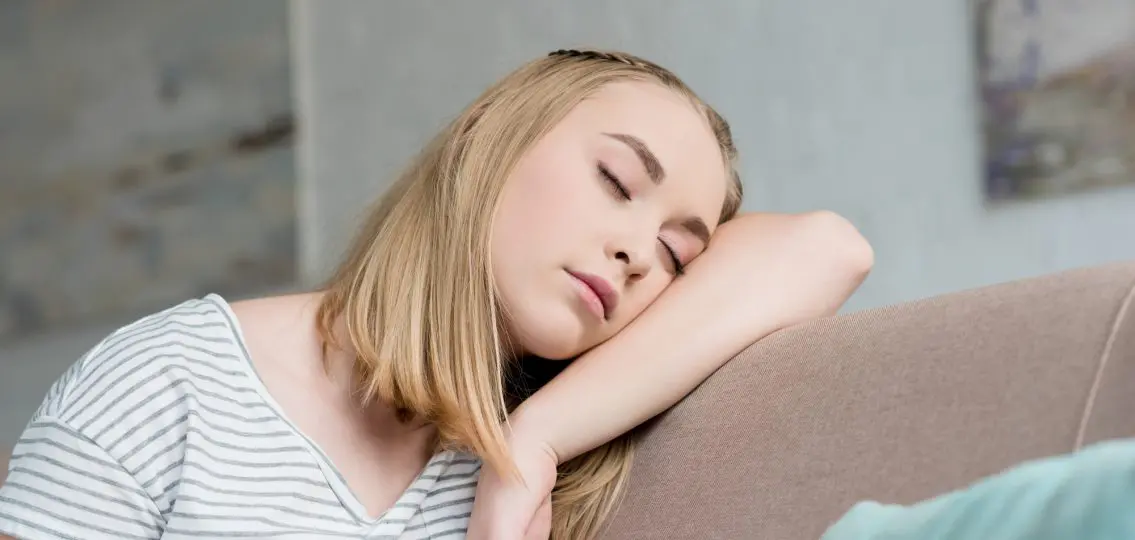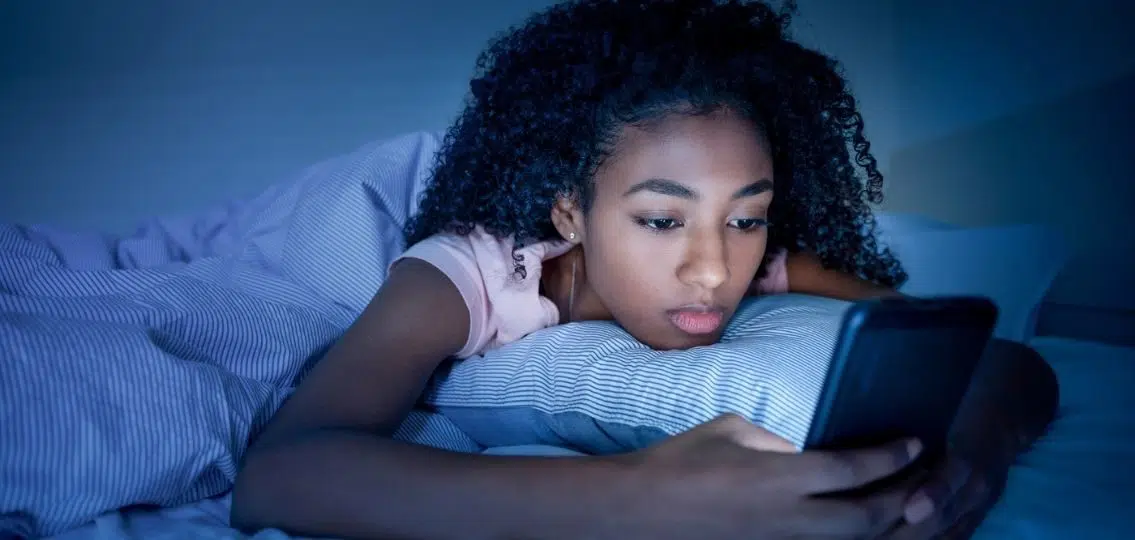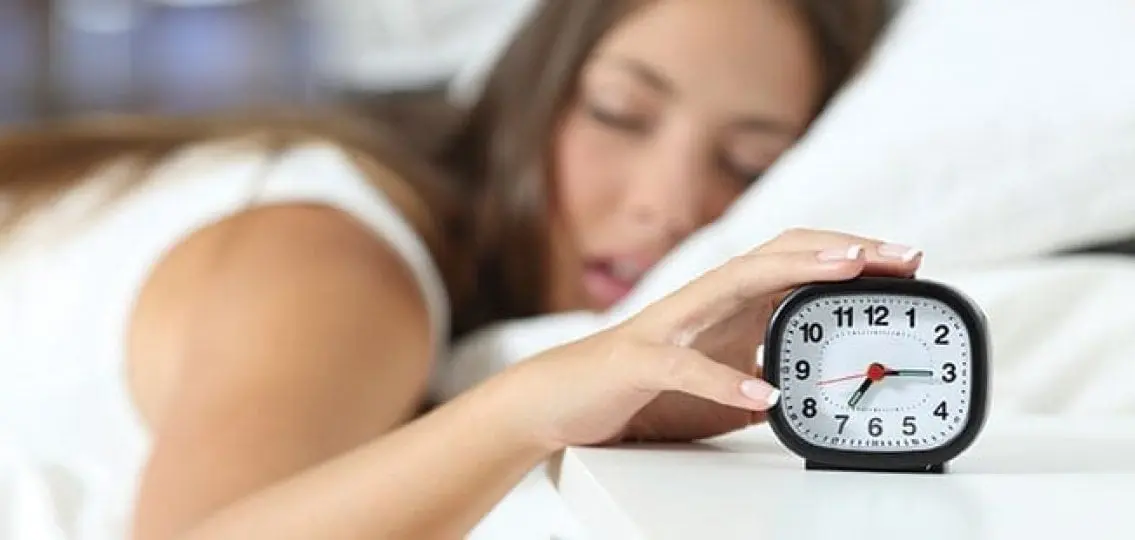Does anyone get enough sleep? Teenagers may be falling short more than any other age group. Studies confirm that the majority of teenagers are not getting anywhere near the recommended 8.5 to 9.5 hours a night, thanks to a variety of factors, including school start times before 8 a.m.

Sleep is a cornerstone of wellness for all of us, but especially for teenagers. “Getting by with six or seven hours is fraught with peril,” says Dr. John Schuen, a pulmonologist with Spectrum Health in Grand Rapids, Michigan, who’s worked on pediatric sleep issues for more than two decades. Indeed, the list of risks for sleep deprived teens is long—and ugly.
Not only do tired teenagers do worse at school, they’re also at risk for higher rates of obesity, mental health issues, and substance abuse issues.
7 Ways to Help Tired Teens Get More Sleep
This school year, why not help sleep deprived teens get more sleep?
1. No screens at bedtime

2. Limit sleepovers to Friday nights
Think of staying up late at a sleepover like flying coast to coast. Your teenager will be jet-lagged. “Even though you can physically move your sleep clock by staying up later, your natural sleep clock can only move about an hour a night,” explains Schuen. “That’s why we get jet lag.” So by sticking with Friday nights for sleepovers, your teenager has Saturday and Sunday night to recover before having to get up for school on Monday.
3. No caffeine
Teenagers are much more sensitive to caffeine than adults or even twenty-somethings. “Caffeine will last in a teenager’s system for hours longer,” explains Schuen. So talk to your teenager about the ramifications of drinking caffeinated beverages, like coffee, soda, and especially so-called “energy” drinks—Monster, Red Bull, Rockstar—which can contain high, sometimes dangerous, levels of caffeine.
4. Get back to a school schedule a couple of weeks early (and stick with it)
Especially if your teenager has gotten into the habit of staying up late and sleeping in the summer, be proactive about moving his sleep clock back well before the first day, recommends Dr. Sasha Carr, a licensed psychologist and sleep expert with Off to Dreamland Sleep Services. “I recommend getting back into a reasonable schedule about two weeks before school starts, so it’s not a shock to the system.” On the weekends during the school year, encourage your teenager not to sleep in too long on Saturday and Sunday mornings. That will make Monday tough.
5. No naps
Some sleep-deprived teens are in the habit of staying up late, rising early for school, and making up their sleep deficit with an afternoon or early-evening nap. It’s a bad idea. “Napping during the day is not helpful because it fragments sleep,” Schuen explains. “Instead, encourage your teenager to stick it out and go to bed earlier.” In other words, 30 minutes more sleep in the afternoon is not as beneficial as adding 30 minutes of sleep at night. “Your teenager will be much better rested if she adds that sleep at the end of the day,” says Schuen.
6. Have a bedtime ritual
You can’t control when you fall asleep, but you can create an optimal environment for sleep to take place. “Create a ritual that signals to your brain and body that it’s time for sleep,” recommends Carr. Turn all computers, smart phones and devices off at least 30 minutes prior to going to bed. Take a warm shower. For girls, Carr recommends something as simple as a lotion with a particular scent that she only uses at bedtime as a cue to the brain that it is time for sleep. For boys, perhaps changing into clothes that he only wears at bedtime.

7. Beds are only for sleep
Your son or daughter’s bed is not the home office. “There is this idea of `stimulus control’ which suggests that time spent in bed should be associated with sleeping, and that any activity in bed other than sleep is counterproductive to sleep and can actually condition someone to have problems sleeping,” explains Carr. “You do not want your brain to associate your bed with work or studying or any other activities that stimulate rather than calm your brain at night.” Instead, prepare a pleasant, comfortable separate space that is conducive to studying so your teenager associates a bed with sleep—and only sleep.





